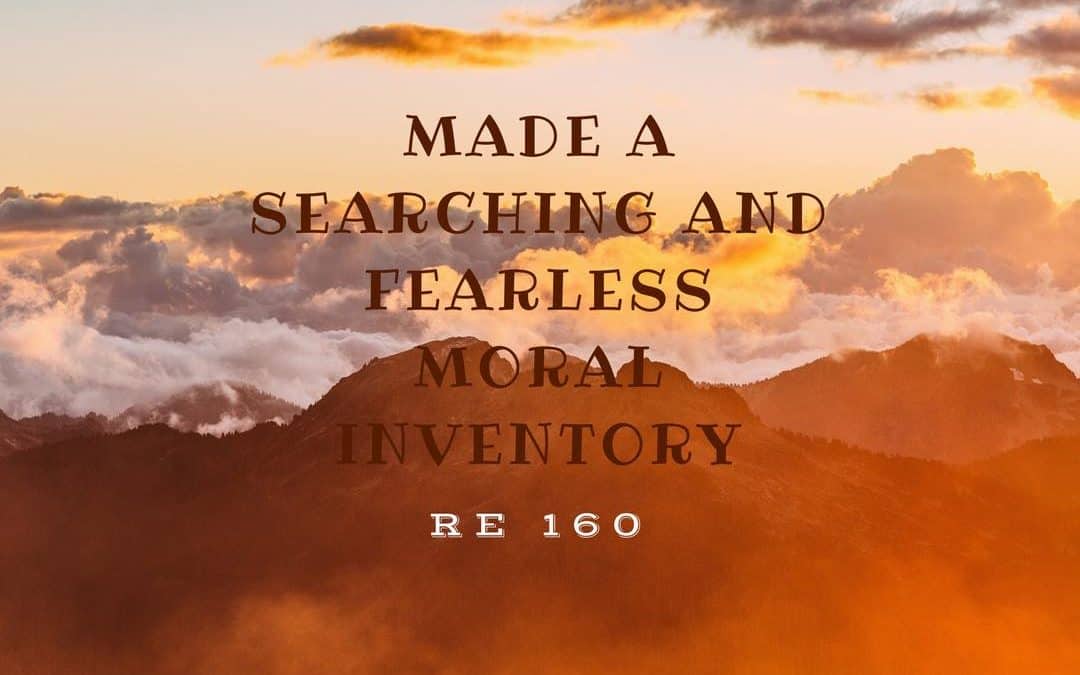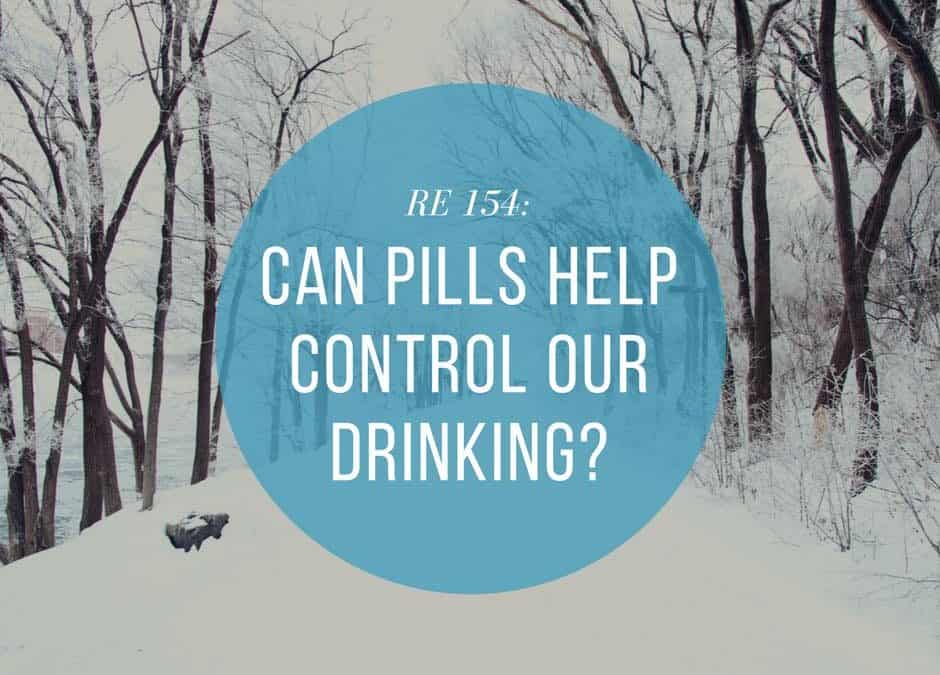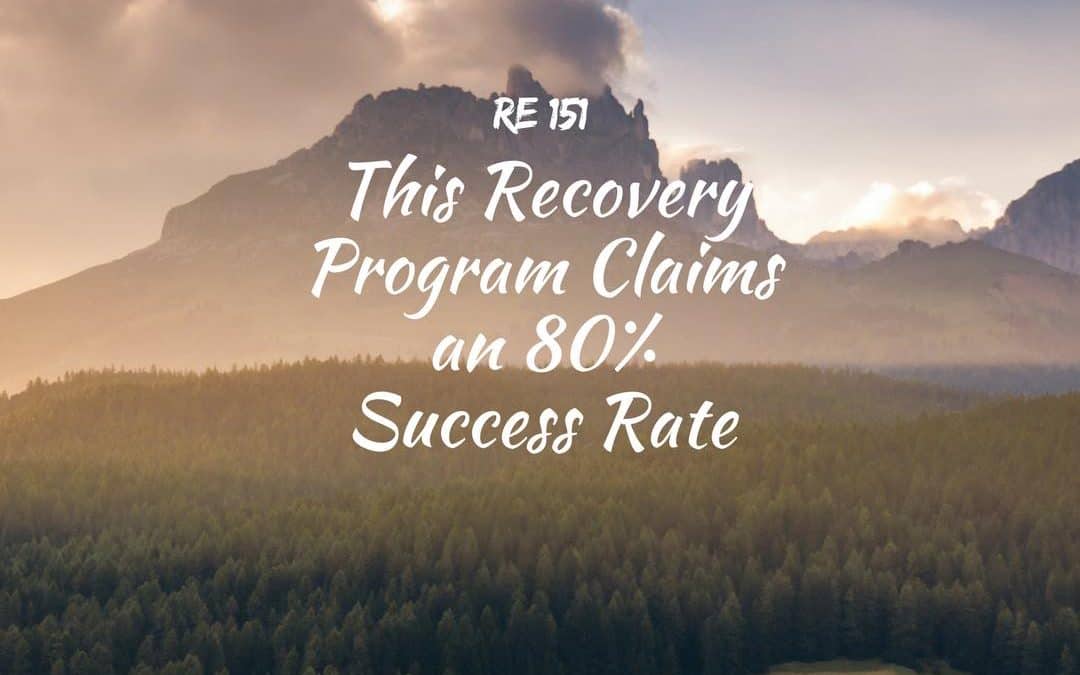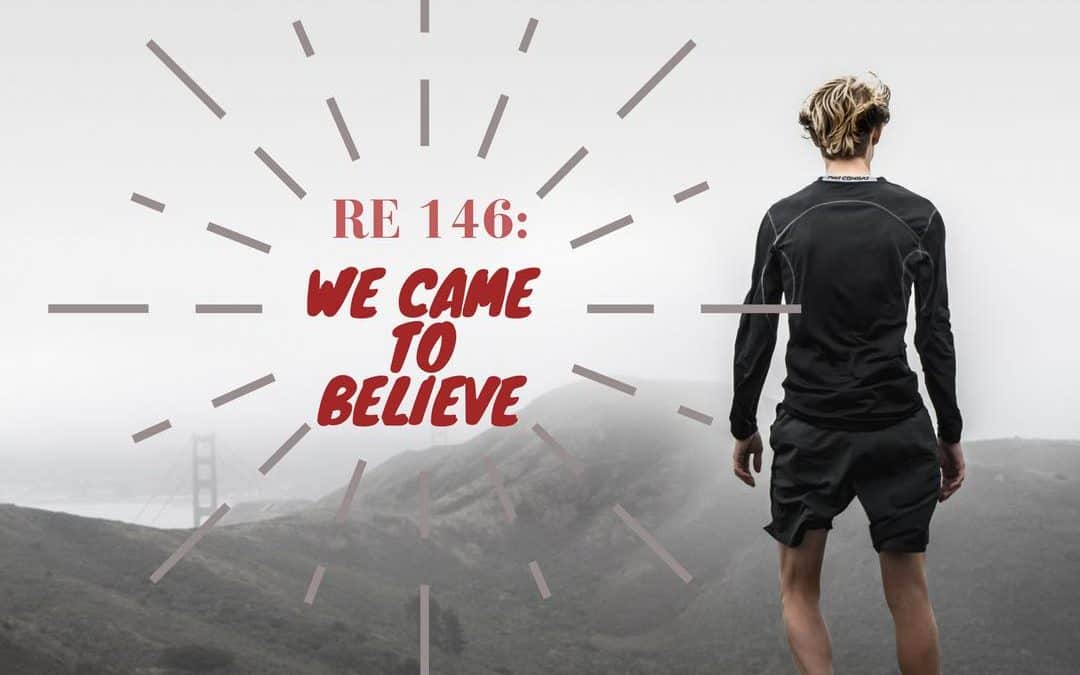
by Paul Churchill | Mar 12, 2018 | Podcast
Podcast: Play in new window | Download
Subscribe to the Recovery Elevator Podcast Apple Podcasts | | More
Step Four – “Made a searching and fearless moral inventory of ourselves”
The Recovery Elevator Podcast isn’t affiliated with Alcoholics Anonymous, but we cover the steps due to listener demand.
For easy lookup:
episode 142 was Step 1
episode 146 was Step 2
episode 152 was Step 3.
The fourth step is probably everyone’s least favorite step, as it involves things we don’t want to do… face our past, our mistakes, our scary thoughts, emotions and current problems. Though it can be scary, it is still one of the most important steps in recovery. Alcoholism is merely a symptom of underlying inner conflict, delusions and/or flaws in our character that need to be faced, and where possible, overcome.
The key is honesty. While working step four, we get a new perspective on the bigger picture and see ourselves and our behavior in a new way that helps us to move forward without fear and allows us to embrace a healthy self-image.
This step is all about bringing unconscious behavior to light. We gradually realize that only we can change, and not change others. This step is meant to be done with your sponsor.
Kerry, with 12 days since her last drink, shares her story…
SHOW NOTES
[13:25] Paul Introduces Kerry.
Kerry lives in Los Angeles, is 47 years old, is married, has two children and four dogs. She loves reading, the movies, traveling, and book stores.
[17:40] When did you first realize that you had a problem with drinking?
In her 40’s. She started in her teens, and as an adult, she drank daily. She struggled to stay sober while she was pregnant. Her drinking ramped up after her second child, in her 40’s. She thought her drinking was normal, so she found it hard to believe she had a problem.
[22:00] What were some of the rules you put in place?
She tried to only have a glass of wine with dinner, but it didn’t work. She tried to insert a glass of water between each glass of wine. The rules didn’t work, which only made her feel down on herself.
[25:00] When was your first attempt to quit?
2 and ½ years ago. Her friends invited her to AA meetings. She “white knuckled it” about three weeks. Relapsed. This added more shame, which leads to more drinking. She kept trying and has been in and out since then.
[27:20] Was there one moment that changed it for your or was you generally sick and tired?
She was sick and tired. She became ashamed when her daughter witnessed her really drunk.
[29:00] What are some of the things in your recovery portfolio and what will you do to make it stick this time?
She wakes up early and meditates. She reads a chapter of “Living Sober” every day. She reaches out to sober friends. She goes to meetings occasionally.
[32:49] What benefits do you see with 12 days in sobriety?
More energy. Better sleep. No hangovers. Being more aware and present for her kids. Better memory.
[34:41] How are you overcoming the internal dialogue that is trying to convince you to drink?
She knows it’s her addiction talking and it helps her to compartmentalize the thought. She uses meditation techniques to let it pass.
[36:40] How has it been with your husband?
He’s been supportive. He also thought she was drinking too much. He’s compassionate and helpful.
[40:35] What’s on your bucket list in recovery?
She loves traveling. She intends to use the money saved by not drinking to fund a trip to Amsterdam. She wishes to be more present for herself and her family.
[43:10] Rapid Fire Round
- What was your worst memory from drinking?
Before she got married, she went to a dinner party and got drunk. She left the party without telling anyone, and she threw up on the subway.
- Did you ever have an “oh-shit” moment?
Her husband noticed that she was slurring her words and pulled aside to ask her to stop drinking.
- What’s your plan moving forward?Keep up with the morning meditation. More meetings. Find a sponsor and work the steps.
- What’s your favorite resource in recovery?She likes reading other people’s stories. She’s reading the books by Caroline Knapp and Sarah Hepola. (See mentioned resources below)
- What’s the best advice you’ve ever received (on sobriety)?
“Follow the drink to the end”. One glass isn’t just one glass.. it ends up with her throwing up and a terrible hangover.
- What parting piece of guidance can you give listeners who are in recovery or thinking about quitting drinking?Just do it. Start today. Don’t set a date, just do it today.
- You might be an alcoholic if…Y
ou open a bottle of wine, pour out two glasses and pour the rest down the drain. Then, after you’ve had the two glasses, you go out to the liquor store and buy more wine to keep drinking.
Resources mentioned in this episode:
Recovery: Freedom from Our Addictions – A book by Russell Brand
Living Sober – an introduction to AA and recovery.
Blackout: Remembering the Things I Drank to Forget – by Sarah Hepola
Drinking: A Love Story – by Caroline Knapp
Connect with Cafe RE– Use the promo code Elevator for your first month free
Sobriety Tracker iTunes
Sobriety Tracker Android
Sober Selfies! – Send your Sober Selfie and your Success Story to info@recoveryelevator.com
“We took the elevator down, we gotta take the stairs back up, we can do this!”

by Paul Churchill | Jan 29, 2018 | Podcast
Podcast: Play in new window | Download
Subscribe to the Recovery Elevator Podcast Apple Podcasts | | More
“Does anybody have experience with naltrexone, Antabuse (disulfiram), or Campral (acamprosate)?”
These drugs are designed to help people deal with the physical side effects of quitting alcohol. While readily available, most 12 step programs will not mention quit aids such as these. In the Radio Lab episode “The Fix”, they mention that a very small percentage of people in the early stages of drinking ever qualify for receiving drugs to help them quit. Many people will seek out an easy way to quit, and though these drugs may seem attractive, the only way to successfully move forward is by putting in the work.
Disulfiram – more commonly known as Antabuse, is intended to create negative side effects to break the positive association with drinking. It will not help with the physical cravings of quitting. The United States National Institutes of Health says “…it is unlikely that disulfiram will have any real effect on the drinking pattern of the chronic alcoholic.”
Naltrexone – blocks brain opioid receptors. Probably the most popular. It alters the brain’s neurochemistry to make alcohol less rewarding. The alcohol molecule is similar to an opioid molecule and is received similarly in the brain. Naltrexone blocks the high one gets from drinking.
Acamprosate – more commonly known as Campral, is newer than the other drugs in the US. The complete workings of this drugs are currently unknown, but it appears to disrupt the activity of the gaba and glutamate neurotransmitter systems in the brain, essentially quickening the pace at which a brain affected by alcohol returns to normalcy.
Are these drugs a cure for alcoholism? The common experience is no. These pills only address the physical component of the disease, leaving the emotional and spiritual causes unchecked.
Some key points from “The Fix” episode by Radio Lab:
1 – Billy’s Story – The drugs did what they were supposed to do, in that they helped him get his drinking under control, but they did not cure the underlying causes for his alcoholism.
2 – The separation between the addiction community and the medical community started in the 30s during the tuberculosis epidemic, eventually leading to the medical community relying on medicine and the recovery community relying on a higher power.
3 – According to Anna Rose-Childress, people prone to addiction are the fittest of the fit, evolutionary speaking. They are rewarded from their environment in more subtle ways, which seems to backfire in today’s modern environment.
Stephen, with 12 days since his last drink, shares his story.
SHOW NOTES
[13:33] Paul Introduces Stephen. How long have you been sober? Who are you? What do you do for fun?
Over 12 days. From Brisbane, Queensland, Australia. 29yo. Works as a graphic and web designer. Recent graduate of Nutritional Medicine. Engaged to be married. Love fitness and reading self-help books.
[15:00] When did you realize that you weren’t drinking normally?
Realized he couldn’t just have a quiet night. One drink lead to many, which lead to a three day bender, which lead to difficulty stopping drinking.
[16:00] How did your drinking progress?
Tried staying drunk to avoid hangovers.
[18:00] Did you experience a kind of rock bottom?
Not a rock bottom, but a realization that he had no self control as long as there was alcohol in his system.
[18:55] Did you put any rules in place to moderate your drinking?
Tried general strategies. Only drinking at night, etc. They went out the window quite often. Tried using Antabuse but couldn’t afford it.
[20:19] What was it like using Antabuse?
Was moderate successful. Quit for 3 months. Doesn’t cure the holistic problem.
[22:50] Are you still using medication to help you stay sober?
No. Not working for him in the long run.
[25:00] How did you pick your sobriety date? What strategies are you using?
Figured it was a good year to step it up. Trying to keep busy. Noticed that I have an addictive personality. Figured I’d meditate more and focus on my career.
[28:11] What have you lost to alcohol?
Lost a lot of friends. Made poor choices while drinking. Lost a previous romantic relationship. Lead to positive outcomes.
[30:20] What advice would you give to your younger self in regards to drinking?
“You don’t need to go out and hit up the nightclubs to have fun.” I used to drink and play video games. The association is still strong and tough to break.
[31:45] Have you tried AA?
He considered it. This year he may try it out to experience the community.
[34:20] Do you experience cravings? If so, what do you when they arise?
Tried waiting it out. Reaches out to someone at church. Avoids the internal conflict.
[36:30] Rapid Fire Round
- What was your worst memory from drinking?
Out at a pub, decided to go outside and sit on a bench. Woke up in an ambulance. Needed stitches from passing out and hitting his head.
- Did you ever have an “oh-shit” moment?
Was on a 3 day bender. Went for a drive and because of sleep deprivation was in a car accident.
- What’s your plan moving forward?
One day at a time. Keep setting positive goals. Stay fit. Looking up.
- What’s your favorite resource in recovery?
Recovery Elevator is the biggest one. Listen to podcasts, reads books.
- What’s the best advice you’ve ever received (on sobriety)?
You’re not alone, and you always have a choice.
- What parting piece of guidance can you give listeners who are in recovery or thinking about quitting drinking?
Think of the long term benefits, especially your health.
- You might be an alcoholic if…
get up early on a work day and have a double vodka, even before your decide whether or not you’re going to work.
Resources mentioned in this episode:
Radiolab – The Fix
Connect with Cafe RE– Use the promo code Elevator for your first month free
Sobriety Tracker iTunes
Sobriety Traker Android
Sober Selfies! – Send your Sober Selfie and your Success Story to info@recoveryelevator.com
“We took the elevator down, we gotta take the stairs back up, we can do this!”

by Paul Churchill | Jan 22, 2018 | Podcast
Podcast: Play in new window | Download
Subscribe to the Recovery Elevator Podcast Apple Podcasts | | More
“Half measures availed us nothing. We stood at the turning point. We asked His protection and care with complete abandon.”
This phrase is commonly heard in 12 step meetings. When it comes to recovery, a half-hearted attempt could have disasterous results. Recovery can be confusing. Half measures might yield mediocre results in other areas of life, but due to the nature of the beast, unfortunatly the truth is that alcoholism can not be defeated while alchol is still being consumed, and thus requires one to quit drinking completely in order to successfully move forward without alcohol.
While this is true in the long run, most of us use half measures at the beginning to try and control our drinking. This is normal and, though half measures in regard to quitting drinking leads to relapse, it may also lead one to the conclusion that they have to quit completely. Sometimes the wrong train will take you to the right destination.
Zoie, with 7 months since her last drink, shares her story.
SHOW NOTES
[9:15] Paul Introduces Zoie. How long have you been sober? Who are you? What do you do for fun?
Over 7 months sober. June 1, 2017 sobriety date. Married. Louisville, KY. 23yo. Works at a freight facility. Still learning what she likes to do for fun. Has 2 dogs. Likes music, reading, cooking.
[9:40] What spurred you into sobriety?
Had a car accident while under the influence that she didn’t remember.
[12:00] Did you ever put any rules in place to try and control your drinking?
Yes. Switching types of drinks. Switched from beer to liquor to lower the quantity of drinks she consumed thinking she wouldn’t be viewed as an alcoholic. She would also force herself to run a mile for each drink she consumed.
[13:25] Before your accident, were there signs that you were drinking too much?
Many. Husband was afraid to be around her while she drank. Also, she would jokingly mention that she was an alcholic in conversation, surprising herself.
[14:45] Was this your first attempt to quit drinking after the accident?
Yes. She had a meltdown and wound up in a psychiatric hospital, was diagnosed and medicated. She tried to stop because of her medication, but she couldn’t last more than 5 days. She also lied to doctors about her drinking.
[17:45] What’s it like getting sober at your young age?
Different than others. To her, age didn’t matter. She believes she has hurt enough people and has felt enough pain for anyone at any age. Her friends still drink so she had to remove herself from her social connections.
[19:55] How did you determine which friendships to keep and which to end?
She looked at the things they did together, whether or not there was any real connection beyond alcohol. It wasn’t difficult because the stakes were high. If she couldn’t get sober, her life wouldn’t move forward in a healthy way.
[22:28] How did you get sober? Did you go to a clinic?
Both inpatient and outpatient. On her 1st day of sobriety, she checked into a detox program for 6 days. After, she attented a 5 week intensive outpatient program. This was during the first month or so of sobriety.
[23:45] What is outpatient treatment like?
Very beneficial. She says she wasn’t an easy patient. The program involved a lot of conversation and teaching, helping the patient decide what is best for the patient.
[24:37] What is your point of view on the disease concept?
She finds it helpful to know that she have a disease that can be treated. It is the answer she has been searching for. Not all decisions about health come from a doctor, one can decide for oneself. Also she isn’t alone.
[26:30] What does your recovery portfolio look like now? A day in the life.
Coffee in the morning, then playing with dogs, followed by prayers and meditations. Meditation helps a lot. AA meetings at least every other night. Reach out to support group when she needs help, which is often.
[27:35] How is it important to stay connected?
Incredibly important. There is also pain in sobriety, but more support from a community. Sobriety is only the beginning. Someone can give advice while dealing with problems.
[28:45] How did you deal with your grandmother’s passing while sober?
It was difficult. She noticed she was more present with family. She reminded herself that relapse wasn’t an option. She didn’t want to disappoint her family. “I’ve got to stay sober so I can handle this and be there for the people that need me.” The stakes were high, as she was feeling suicidal. Meetings helped. Reading helped.
[31:50] How have your coping skills improved over the past months?
I no longer jump to conclusions, then run to alcohol. I take a moment to think about and assess each situation when it arises.
[33:15] Have you experienced cravings in your sobriety? If yes, what do you do when they come?
I haven’t really had physical cravings. Mental? Yes. She is using the tools that she has been given to stay sober. The challenge for her is mental.
[34:30] Rapid Fire Round
- What was your worst memory from drinking?
One night became suicidal. Chased husband around with a knife.
- Did you ever have an “oh-shit” moment?
When husband said he was afraid to be around me while I was drinking.
- What’s your plan moving forward?
Continue doing what works. Stay in touch with other people and myself. Don’t give in and hit the F-it button.
- What’s your favorite resource in recovery?
The Big Book from AA.
- What’s the best advice you’ve ever received (on sobriety)?
Whenever times get hard, you can either a) hit the F-it button, b) fight what you’re going through head on.
- What parting piece of guidance can you give listeners who are in recovery or thinking about quitting drinking?
Go with your gut. If you think it’s time to quit it is. “You can put your shovel down whenever you want. You don’t have to keep digging your hole deeper.”
- You might be an alcoholic if…
you have a very hard time choosing between a happy and sober life or a painfully alcoholic death.
Resources mentioned in this episode:
Retreat in Machu Picchu – Retreat of a lifetime coming up in October. 17 people have signed up so far.
Connect with Cafe RE– Use the promo code Elevator for your first month free
Sobriety Tracker iTunes
Sobriety Traker Android
Sober Selfies! – Send your Sober Selfie and your Success Story to info@recoveryelevator.com
“We took the elevator down, we gotta take the stairs back up, we can do this!”

by Paul Churchill | Jan 8, 2018 | Podcast
Podcast: Play in new window | Download
Subscribe to the Recovery Elevator Podcast Apple Podcasts | | More
The American Medical Association recognized alcohol dependence as a disease over 55 years ago. Alcohol dependence fits the disease model because it is a dysfunctional state with characteristic form.
Use of some drugs, including alcohol, may cause dependency. The medical term for this dependency, or addiction, is Chemical Dependency. In order for a chemical to be addictive it must possess three properties. It must be: 1) mind altering or mood changing, 2) euphorigenic, and 3) reinforcing, that is taking the chemical stimulates taking more of the chemical.
Kim, with 3 days since her last drink, shares her story
SHOW NOTES
[14:29] Paul Introduces Kim. I am 43 years old, I have 2 kids, I am from Atlanta, I am a self-employed attorney. I like to walk my dog, be out in nature, and exercise. I come from a family of alcoholics.
[19:34] Paul- Did you ever put any rules into place? Like not drinking before 5:00? Tell us more about that.
Kim- I did actually. I switched to wine, I don’t know if that counts as moderating. I did cut back on the heavy stuff. I tried not drinking when I noticed the emotions were flooding. For me it’s been the amount I have been drinking when I did drink.
[32:18] Paul- We are both one of the “lucky ones” How do you feel about that?
Kim- The one thing I have that my family members don’t have is self-awareness. They are in denial. I feel very very lucky that I have been able to recognize what I am doing, and that it is a problem. At the same time it is everywhere. I see it everywhere.
[43:08] Rapid Fire Round
- What was your worst memory from drinking? Without a doubt it was that night. It was the lowest I felt in my life. I never want to be there again.
- Did you ever have an “oh-shit” moment? It was 3 days ago. We were having fun, watching football. The next thing I knew I had a beer in my hand.
- What’s your plan moving forward? Accountability is big. Actually calling somebody, I can see where reaching out can help break the cycle.
- What’s your favorite resource in recovery? Without a doubt it is the Café RE recovery group.
- What’s the best advice you’ve ever received (on sobriety)? When you are going through hell, don’t stop.
- What parting piece of guidance can you give listeners who are in recovery or thinking about quitting drinking? Don’t beat yourself up. It perpetuates in a negative way.
- You might be an alcoholic if… you actually enjoy being sick with a cold or the flu because it actually suppresses your desire to get a drink for a while.
Resources mentioned in this episode:
This podcast episode is brought to you by Zip Recruiter. Visit Ziprecruiter.com/elevator to post jobs for free.
HIMS Website- Human Intervention Motivation Study
CBS News- Rehab that Puts Alcoholic Pilots Back in the Cockpit
Connect with Cafe RE– Use the promo code Elevator for your first month free
Sobriety Tracker iTunes
Sobriety Tracker Android
Sober Selfies! – Send your Sober Selfie and your Success Story to info@recoveryelevator.com
“We took the elevator down, we gotta take the stairs back up, we can do this!”

by Paul Churchill | Dec 4, 2017 | Podcast
Paul discusses Step 2 from the Big Book of Alcoholics Anonymous: We came to believe that a power greater than ourselves could restore us to sanity.
Mike, with 86 days his last drink, shares his story
SHOW NOTES
[11:31] Paul Introduces Mike. I live in Vermont; I’m 33 years old. I work as a social worker; I hang out with my wife, my 12-year-old son, and play video games.
[16:50] Paul- Describe the progression, coupled with Father time, hangovers are getting worse and worse, talk about that progression.
Mike- Yeah, I would buy those little boxes of wine, then I would just buy the bottle, and the bottle would be gone. It felt like I was in quicksand, when you are running in sand and can’t get any traction.
[20:21] Paul- It’s tough to get 86 days of sobriety, how did you do it?
Mike- Listening to the Recover Elevator was huge. I felt like I was in the contemplation stage. I’ve been thinking about quitting for years. Listening to Recovery Elevator is what really helped motivate me jump right in. I listen to “This Naked Mind” on audio book and really tried to “brainwash” myself, and felt like it worked.
[28:12] Paul- What advice would you give to your younger self? If you could go back to your 16-year-old self, what would you say?
Mike- I would like to go to my 15-year-old self and smack the beer out of my hand. I disagree with the stance that some people can drink normally. Don’t be ashamed that it’s hard.
[35:29] Rapid Fire Round
- What was your worst memory from drinking? The day after St. Patrick’s Day party trying to piece together what happened.
- Did you ever have an “oh-shit” moment? I had a lot of times, the most recent time I drank, I had the house to myself and just laying there by myself.
- What’s your favorite resource in recovery? “This Naked Mind” by Annie Grace
- What’s the best advice you’ve ever received (on sobriety)? Alcohol is shit. It resonated with my bodies’ reaction to alcohol.
- What parting piece of guidance can you give listeners who are in recovery or thinking about quitting drinking? When we are in the contemplation stage of am I an alcoholic or not. The real problem is alcohol is an addictive poison, and anyone can become addicted to alcohol.
- You might be an alcoholic if… you go to St. Patrick’s day party, spill red wine on the rug, you put your arm around another woman, and rub her back while standing with your wife, and you black, the last thing you remember is raising both fists to the sky and yelling “I’m the king of the world”
Resources mentioned in this episode:
RX Bar – Visit www.rxbar.com/elevator for 25% off your first order.
Alcoholics Anonymous “Big Book”
“This Naked Mind” by Annie Grace
Connect with Cafe RE– Use the promo code opportunity to waive the set up fee.
Sobriety Tracker iTunes
Sobriety Tracker Android
Sober Selfies! – Send your Sober Selfie and your Success Story to info@recoveryelevator.com
“We took the elevator down, we gotta take the stairs back up, we can do this!”







